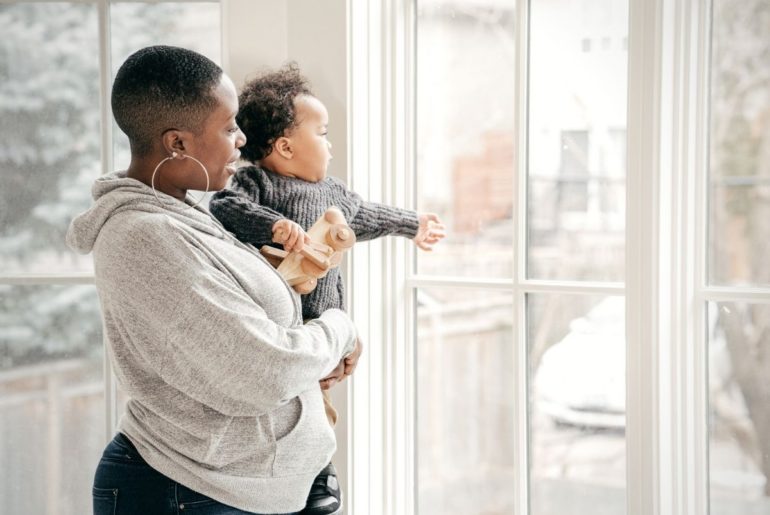If setting New Year’s Resolutions sounds overwhelming, that’s because it is. You’ve been through a lot in 2020 and have been under so much pressure, that this might not be the year to lay out ambitious goals for yourself (and then feel bad about not meeting them). A smarter, kinder-to-yourself option for 2021 is to set intentions rather than resolutions.
While resolutions are usually specific goals you want to accomplish (like quitting smoking or exercising three times a week), setting intentions is more about entering the new year with a mindset for staying calm and mentally healthy. “While setting goals is fixated on the future, setting intentions keeps you grounded and present in the moment,” writes wellness expert Jennifer Cohen in Forbes. It’s more about the journey to get to your goals.
Here’s a guide to setting intentions in a way that’ll help you through the coming year, day by day.
Decide what would help you most
Take a quiet moment with a pen and paper—or chat with a friend, if you think better that way—to identify what would make you better able to handle the challenges that come your way in 2021. Maybe you want to be more patient and less stressed when interacting with your kids. Or maybe you want to dial down the chaos factor of your work-and-school-from-home arrangement.
Examples of intentions could be:
- I intend to pause and think before I react to things.
- I commit to being compassionate to others, even if they don’t share my views.
- I will focus on connections with my kids, not just compliance with the rules.
Make a plan that’s right for you
Next, make a plan. What are some small things you could do, or learn about, to get yourself into the mindset you want to be in? Perhaps you want to try a guided meditation app once a week, or read more about childhood development stages so that you can respond to kids’ outbursts with empathy. Maybe you need to come up with an agreement that your partner will take the kids out of the house for two hours every weekend so that you can have some space to plan and organize for the week.
Setting intentions is based on the idea that you’re preparing yourself to respond to future challenges in ways that will lead to positive growth, not more stress. Cohen points to this powerful quote by Viktor Frankl, who was a neurologist, psychiatrist, and Austrian Holocaust survivor: “Between stimulus and response there is space. In that space is our power to choose our response. In our response lies our growth and our freedom.”
That power to choose your response applies to a lot of situations. When your child is doing something that frustrates you, for example, or when your boss is piling on unrealistic expectations, you can take a moment to breathe and think about your intentions before reacting in a way that you’ll regret.
How are you going to make your plan sustainable?
It’s a great idea to share your intentions and your plan with someone, whether it’s your family, your partner, or an accountability buddy over Zoom. If someone close to you knows your intentions, and you know theirs, you’ll be able to check in with each other and be honest about how it’s going throughout the coming year.
Your physical and mental health will need plenty of attention and care so that you can get on track towards the intentions that you set. Exercise and nutrition help you feel energized and ready for what comes your way. So, finding realistic ways to fit healthy habits into your everyday life is key: getting exercise by playing tag with the kids during their school breaks, or planning healthy snacks for the whole week when you’re making a grocery list. Now could be the perfect time to start a family mindfulness tradition, such as journaling time or a quiet nook.
Lastly, you’re going to need regular reminders about your own intentions. That may mean setting a journaling date with yourself for the first day of every month, taping a handwritten sign that states your intention on the bathroom mirror, setting reminders on your calendar to text your accountability buddy, or checking in with yourself each morning.
Kelsey Patel, a spiritual coach and meditation teacher, says, “Every morning before I wake up, I place my hand on my heart for just a few seconds or a few moments, and I breathe, connect to myself, send love to myself, and send love to the day. Then I set an intention for my day.”
Author Joshua Becker suggests choosing a certain moment of your early morning routine, like brushing your teeth or taking your first sip of coffee. During that daily action, state your intention clearly by completing the sentence, “Today, I commit myself to….”
Since the next year, not to mention the next week, comes with so many unknowns when you’re parenting during a pandemic, it can feel impossible to plan for any concrete accomplishments during 2021. But it is possible to plan for a positive mindset for each day—which is why the practice of setting intentions is so helpful right now.







